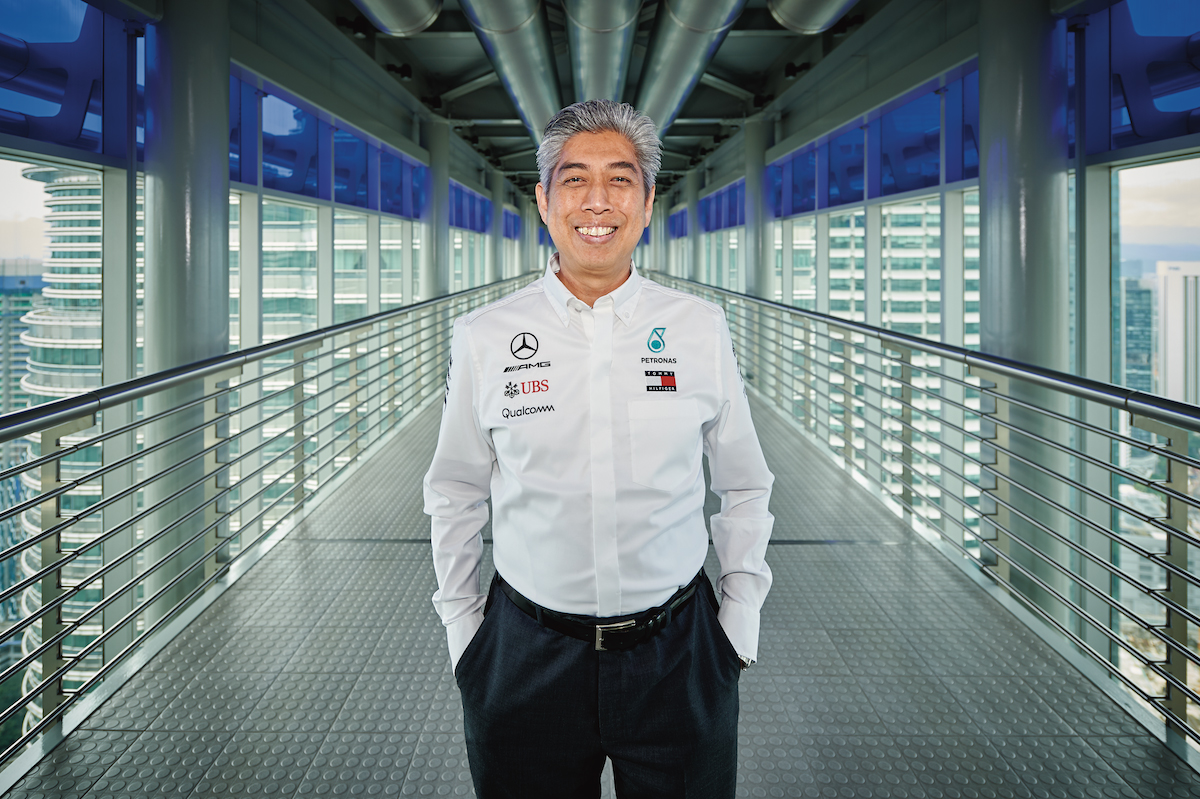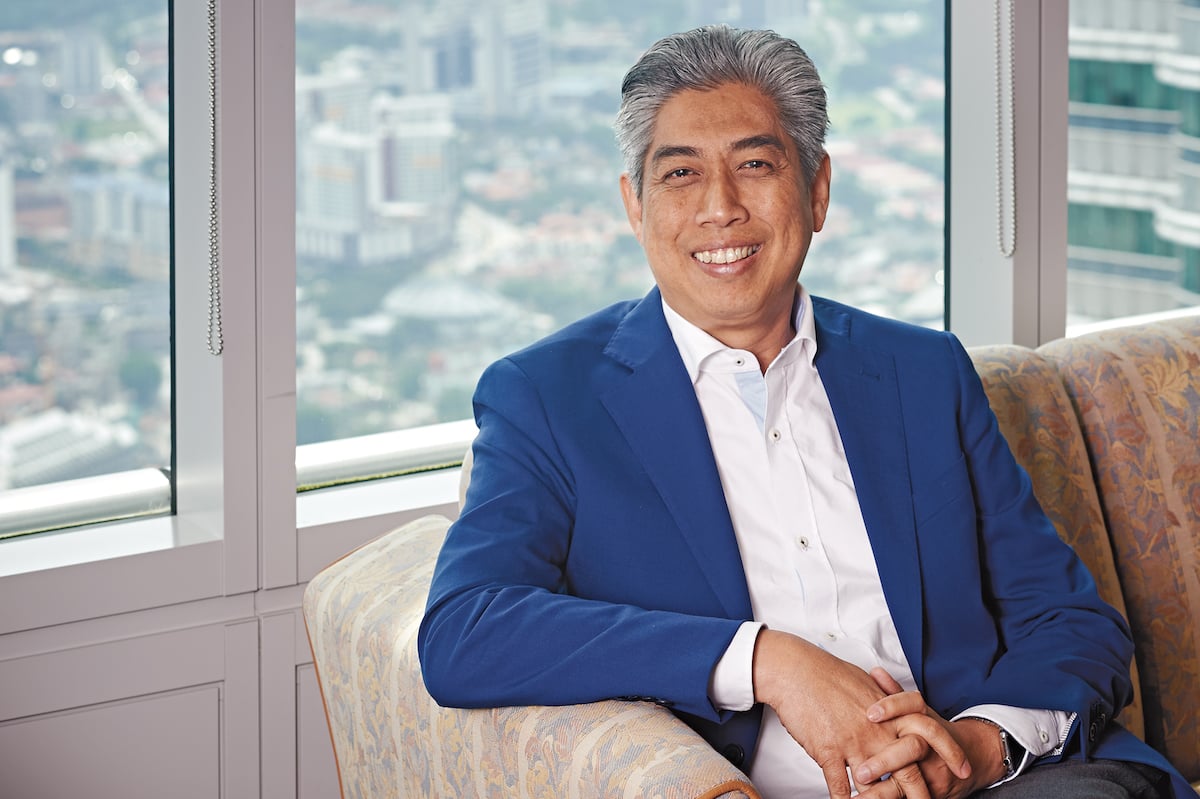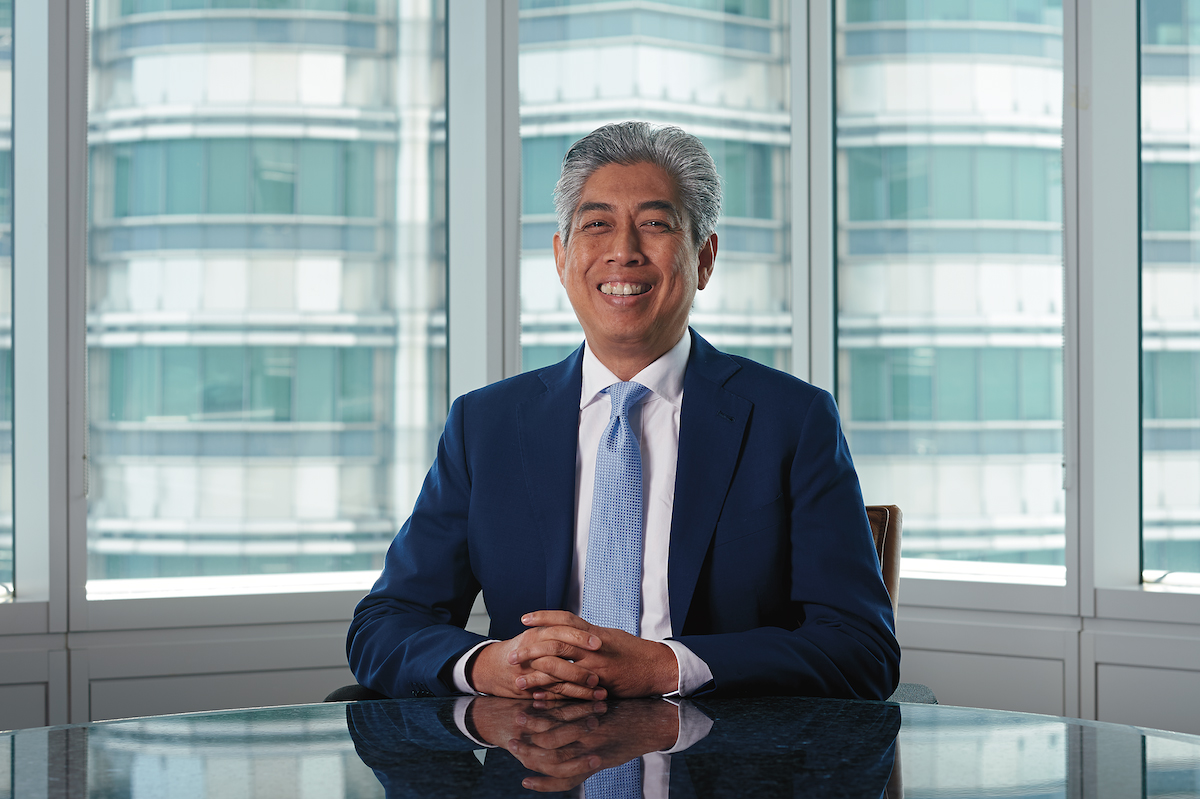Arif Mahmood believes that success can, and should, occur daily. The Downstream Business of Petroliam Nasional Berhad (PETRONAS) focuses on adding value to crude and gas production and its leader Arif believes that daily achievements must exist alongside the pursuit of long-term ones. “I plan what I want to achieve for the day on my way to work,” he says. “I believe achievements should occur on a daily basis, and you want that sense of accomplishment knowing that every day has been a great day.”
After attaining a Bachelor of Science in Electrical Engineering from Boston University in 1984, Arif began his career as an engineer working for PETRONAS Gas Berhad. He spent 10 years working in this capacity before gaining experience in the different businesses of PETRONAS. He then completed an MBA in 1999 at the Massachusetts Institute of Technology. Arif became PETRONAS Downstream CEO in 2015, having previously held positions as PETRONAS Senior Vice President for Corporate Planning and Vice President for Oil.
While striving for excellence in project delivery, PETRONAS Downstream maintains a commitment to operational excellence by getting the basics done well. The culture of accountability permeates the business, underpinned by shared values – loyalty, integrity, professionalism and cohesiveness – that have been in place since the early days of PETRONAS.

6 cultural beliefs
Six cultural beliefs underpin PETRONAS’ operations: superior results, trust, shared success, accountability, open communication, and responsibility. “We want to encourage an open culture of accountability, and to facilitate integration within the PETRONAS group, leading to a more empowered organisation,” Arif says. “One thing that we truly value is being a company that can be trusted.” An adherence to these values can be seen in many of the activities carried out by the PETRONAS group, and Arif mentions one particularly impressive example: PETRONAS’ upstream business, one that supplies liquefied natural gas to countries around the world, has not missed a single delivery to Japan during the 30 years they have been in partnership. “If we say we are going to do something, we will do it.”
“What we want to do is encourage an open culture of accountability, and uphold integration within the PETRONAS group, leading to a more empowered organisation.”
These six cultural beliefs form part of a cultural change ushered in by PETRONAS CEO Wan Zulkiflee Wan Ariffin in 2016, when extensive layoffs were necessary following a drop in the price of crude oil. They have, along with PETRONAS’ long-standing commitment to operational excellence, helped support the construction, started in 2013, of the US$27 billion Pengerang Integrated Complex (PIC) in Johor, Malaysia. Trading, refining, petrochemicals and gas transmission all fall under the purview of the Downstream group.
The RAPID project
At present, investment is heavily directed to the petrochemical side of the operation, and Arif is keen to describe the US$16 billion Refinery and Petrochemical Integrated Development (RAPID) project. The RAPID project, which is the centrepiece of the PIC, is a petrochemical complex and refinery nearing completion. The complex incorporates a 300,000-barrel-capacity refinery, and downstream products are produced in a steam cracker before being delivered to petrochemical businesses and plants. Completion is scheduled for the first quarter of 2019, and Arif anticipates a 3.3 million ton increase (roughly 26%) in the annual production of petrochemical products.
The RAPID project is being implemented to aid PETRONAS Downstream in meeting an increased demand in the Asia–Pacific region for its value-added products. It is also geared towards increasing the quality of life in the region, partly by creating new opportunities for employment. The recent, steady growth of the middle class throughout ASEAN, a region that was once known for its production capabilities, is seeing a corresponding growth in consumption. “With a large population and rising middle class, we see an increased demand for petrochemicals,” notes Arif. “Essentially, we are increasing the production of basic chemicals, while at the same time moving further downstream to add value to these products.”
The potential for local growth is vast and, as Arif tells The CEO Magazine, “the main focus for the downstream business moving forward is to capture the opportunities in the region.” He mentions “new technologies that will assist operations on the ground, and features that allow for increased safety, better planning and seamless integration”. Predictive maintenance, for example, will be carried out throughout the complex with the help of mobile technology (mainly intelligent sensors), increasing productivity and efficiency. And a heightened emphasis on workers’ safety has led to the incorporation of drone technology to increase operational efficiency and minimise the risk of injury. A dedication to clear communication between onsite technicians and experts working behind the scenes ensures transparency and accountability.

Seeking a competitive edge
Going forward, the talent that PETRONAS nurtures will play an integral part in capturing the opportunities offered by a growing region; looking back, the cultural beliefs PETRONAS instils in its workers has supported the construction of the Pengerang complex and the RAPID project in every phase, and at every level, from those involved in the planning to the contractors working on delivering the project. “We’re starting to see the benefit of the shared beliefs in the RAPID project,” Arif says. “Imagine trying to build a project worth US$27 billion and making sure that everything goes smoothly. Our culture makes sure that everyone’s vision is aligned.”
The RAPID project demonstrates one way in which PETRONAS is committed to Malaysia’s economic growth. It will play an important part in the government’s Economic Transformation Program, and represents a step forwards in terms of technological development. Arif touches on the efforts being made across PETRONAS’ wider operations that will allow the company to not merely to keep pace with rapid improvements in technology, but to also capitalise on them. “We have a dedicated unit that assesses our project delivery as well as our research and development facilities,” he says. “One of the main areas that we are dedicating resources to is the digital space. We have recently started applying analytics to heat exchangers, for example, and will run analytics across our facilities to determine how to improve predictions and planning.”
Seeking a competitive edge in an increasingly cut-throat industry, Arif stresses the importance of research for the future success of the petrochemical branch of PETRONAS. One goal involves speciality chemicals, and he notes that the studies undertaken by PETRONAS’ research centres will aim to put the company ahead of its competitors. Global research and development facilities for lubricants have recently been established in Turin, Italy, with satellite facilities in Brazil, China, South Africa, Kuwait and Malaysia. This satellite research network, one designed specifically with the customer in mind, allows for improved connection with consumers.
Challenges, opportunities, and strengths
Indeed, one of the enduring external challenges that PETRONAS faces is changing trends in consumer behaviour, due to the increasing availability of new technologies. The emergence and growth of these trends require an operational flexibility on PETRONAS’ part. One such trend involves the increased demand for electric and hybrid cars, leading to a decline in the demand for fuel products, and Arif mentions the changes PETRONAS will need to make in response. “When we look at our downstream marketing, we will assess the percentage of fuel sold to petrol stations against non-fuel products. To protect the business, attention will be paid to increasing the income coming in from non-fuel products.”
In these challenges lie opportunities for PETRONAS to live up to its reputation as a company committed to operating in line with a coherent set of cultural values. In the face of new and more stringent carbon dioxide emission requirements in Europe, for example, the company has devoted considerable resources to R&D that will assist car manufacturers to meet these requirements. A focus on new methods of production will allow PETRONAS to meet customer needs while at the same time enabling their car manufacturer partners to achieve their own goals.
Arif identifies another significant challenge for PETRONAS, moving forward, as the acquisition and retention of the best talent in the industry. “Key to our success will be creating an environment to nurture and grow unique talents,” he says. “This will require us to change our approach, and modify our systems and policies to facilitate an agility in operations.” Asked about his strategy to attract new graduates as well as those who already have experience in the industry, Arif mentions PETRONAS’ focus on investing in talent and its technical training facilities, detailing the process whereby experienced workers are taken to new facilities to become familiar with them, ensuring a constant flow of experience and expertise between old and new facilities.
“One of PETRONAS’ strengths is education,” he maintains. “We invest heavily in attracting talent, and provide informal, on-the-ground training alongside more formal training. We have facilities not only in Malaysia, but across the world, giving our workers the opportunity to experience all aspects of the business.” He notes, though, that talent on its own is not enough, and states PETRONAS’ expects its workers to wholeheartedly respects to its values. “You can’t have somebody who merely performs without subscribing to our values.”
“One of PETRONAS’ strengths is education. We invest heavily in attracting talent.”

The future
PETRONAS’ success rests on its ability to meet consumer demands and expectations, which shift in response to a constantly changing technological landscape. This current state of affairs, with its readily available technologies, is also one of heightened competition, with increased competition meaning that there is a diminishing tolerance for mistakes. “With the margin of error getting smaller, understanding and responding to customers’ needs will involve knowing what these needs are before the customer becomes aware of them,” says Arif. As demonstrated by the shift towards electric and hybrid cars, consumers’ changing will drive the creation of new opportunities and areas for growth, while at the same time giving rise to the opportunity to nurture a competitive mentality of playing to win.
In Arif’s vision, the future will be “an interesting and challenging time”. It will be a survival of the fittest. “Everybody has a role to play in ensuring that we do win, as we gear up with new facilities and pursue growth opportunities.”
PETRONAS is demonstrating a desire to stay ahead of the game, and it is clear the company will rise to the challenge of meeting the other oil and gas corporations in the world head-on. While this will involve commitment to achieving a series of long-term goals, one can only imagine that Arif will continue to celebrate the small successes and daily achievements along the way.


